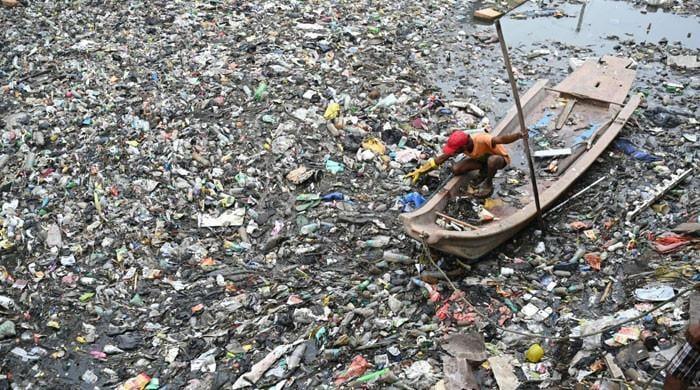As the delegates from more than 170 countries prepare to meet in Geneva for a fundamental round of conversations, a prominent marine garbage expert is urging them to ensure an ambitious global agreement on plastic pollution.
According The guardianProfessor Richard Thompson, who coined the term ‘microplastics’, emphasized that a decisive action is needed to protect human health and the planet for future generations.
Thompson, named between Times 100 more influential people this year, attend the conversations as coordinator of the scientist coalition for an effective plastic treaty.
“It is really clear to protect future generations, we need to take decisive measures now in a treaty to address plastic pollution. Therefore, I hope that negotiators can see the next generation in the eyes and say that they acted decisively.”
Thompson’s call occurs in the middle of deep divisions between nations on whether to include legally binding limits in plastic production in the final treaty.
Last November, negotiations in Busan, South Korea, failed to reach an agreement.
More than 100 countries support legally binding reductions, but nations with large fossil fuel industries, such as Saudi Arabia, Russia and China, are pressing for a treaty focused on better management and waste recycling.
The United States has also indicated support for a less ambitious agreement.
The urgency of the situation was underlined by a recent report that warns that the world is in a “plastic crisis”, causing diseases and death and that costs at least $ 1.5 billion a year in health -related damages.
Plastic production has increased more than 200 times since 1950 and is projected to almost triple by 2060. This growth is largely driven by the production of single -use plastic products, particularly for containers and containers, containers, The guardian reported.
Worldwide, only 9% of the plastic produced is recycled, and Thompson, whose work led to the prohibition of the United Kingdom of microperlas in cosmetic products, said the evidence showed that plastic production should be reduced to address plastic pollution.
He believes that a treaty must guarantee that only essential plastics are produced, the thousands of chemicals used are reduced and a circular reuse economy is adopted.
In addition, Thompson said that, although some countries see production cuts as an economic threat, “business as usual are not sustainable.”
Graham Forbes, head of the delegation of Greenpeace, to the negotiations of the treaty, echoed this feeling, saying: “The production of uncontrolled plastic is a death sentence. The only way to end with plastic pollution is to stop making so much plastic.
“World leaders must take the opportunity in Geneva, face the fossil fuel industry and take the first step of humanity to end the plastics crisis and create a healthier and healthier future for all.”




